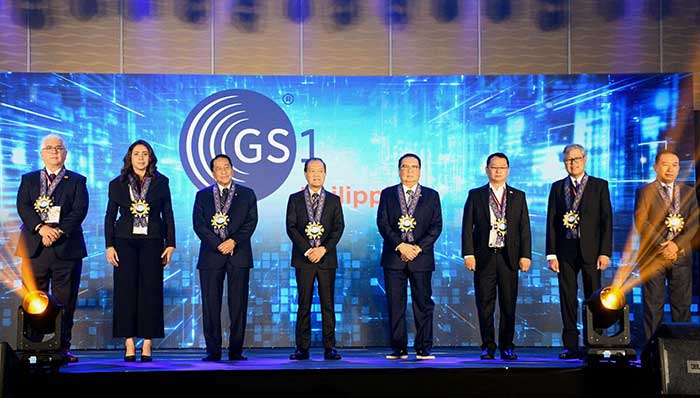
By Francis Allan L. Angelo
GS1 Philippines, the authority on barcode standards in the country, has embarked on a transformative journey to reshape the retail landscape with the launch of GS1 Activate.
This innovative web-based service simplifies the creation of barcodes and digital symbols, marking a significant leap towards the digitalization of the retail supply chain.
The official unveiling of GS1 Activate took place during the GS1 Philippines’ Annual Conference and General Membership Meeting on January 30, 2024. This service is set to modernize the generation of barcode numbers and symbols for businesses, thereby digitizing product data and enhancing the efficiency of supply and demand chains on a global scale.
GS1 Activate aligns with the GS1 global standards for accuracy in product identification using global trade item numbers (GTINs) and promotes seamless data sharing to improve operational efficiency and customer service.
Businesses can now effortlessly acquire barcode numbers, enabling the worldwide distribution of their products. The service further provides guidance on barcode symbol printing and placement to ensure the products are ready for the international market.
The move by GS1 Philippines to introduce GS1 Activate to over 30,000 retailers across the nation by the end of 2024 is ambitious, considering their current service to over 5,000 retailers. This bold step is anticipated to be a game-changer in an economy where the e-commerce market is projected to reach a staggering $24 billion (approximately Php 1.3 trillion) by 2025.
GS1 Philippines and Philippine Retailers Association President Bobby Claudio expressed his enthusiasm for this milestone.
“GS1 Activate revolutionizes business barcode generation, reducing the time required compared to traditional product identification methods and eliminating common errors, saving costs on label reprinting and minimizing the need for extensive personnel training,” Claudio said in a press release.
The conference theme, “Unified Unlocked: Activating Integrated Digitalization,” commemorated the 50th anniversary of the barcode system. It also emphasized GS1’s commitment to transitioning from barcodes to QR codes and ensuring global retail Point of Sale (POS) scanners can process 2D barcodes by 2027.
GS1 Philippines Chairman Atty. Pablo Gancayo highlighted the future-forward approach of the organization, saying, “We are now focused on evolving the barcode into the next level we call the 2D migration, which is expected to revolutionize further commerce.”
The event, which was a convergence point for industry leaders and government officials, also saw the participation of DTI Undersecretary Mary Jean T. Pacheco, who spoke on the government’s efforts to overhaul the food distribution system. She stressed the importance of integrating ICT to enhance logistics performance, signaling potential collaborations with GS1 Philippines to bridge supply chain gaps.
The conference provided a platform for thought-provoking discussions and networking among various stakeholders. Notable figures in attendance included DICT Secretary Ivan John Enrile Uy; Prof. Ana Maria Veronica Solano from De La Salle-College of Saint Benilde; and Love Emmanuel Agudo, Founder of CLASSchool and General Manager of Nutraways Manufacturing Corporation.
GS1 Global Office President and CEO Renaud De Barbuat; GS1 Philippines Trustee Sergio Ortiz-Luis Jr.; and Joe Horwood from the GS1 Global Office also graced the event, signifying the global support for GS1 Philippines’ initiatives.
Representatives from prominent industry groups such as PHILEXPORT, PCCI, PRA, PHILFOODEX, PCFMI, PHAP, PCCTA, PIP, CCIP, SDAP, and the Beverage Industry Association of the Philippines were present, indicating a strong industry backing for GS1 Activate and the digitalization of retail supply chains in the Philippines.
The launch of GS1 Activate by GS1 Philippines is more than just a technological upgrade—it’s a step towards integrating the nation into the global digital economy, fostering efficiency, and setting new standards for the future of trade and commerce.
















